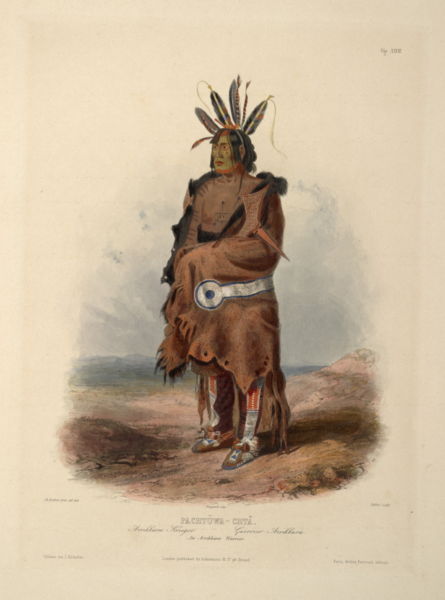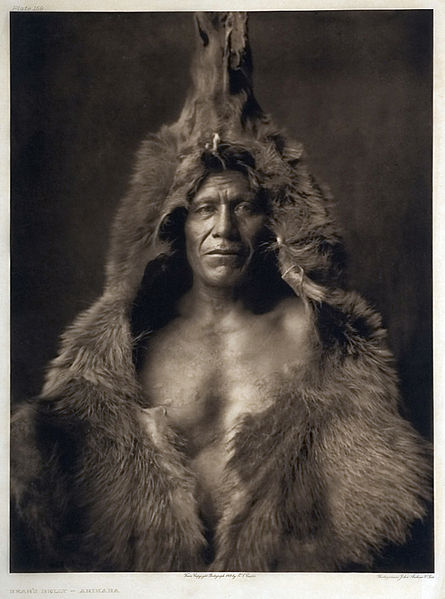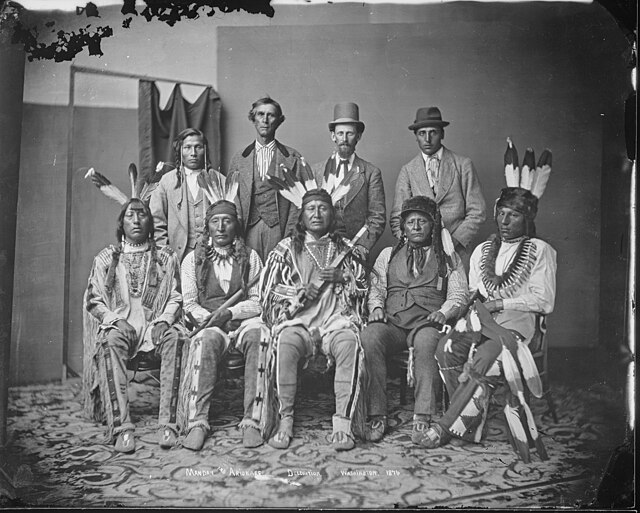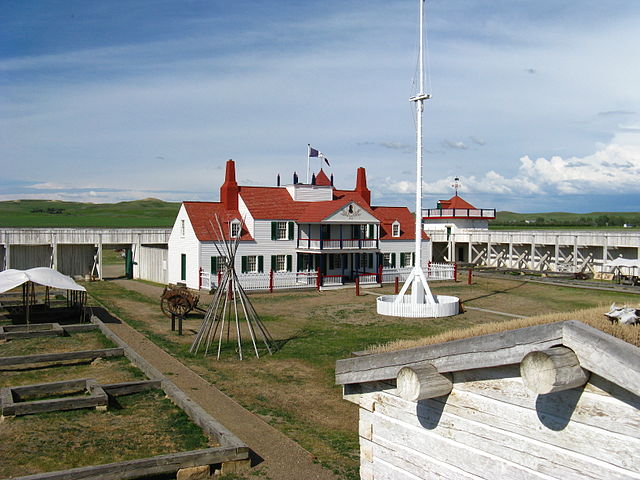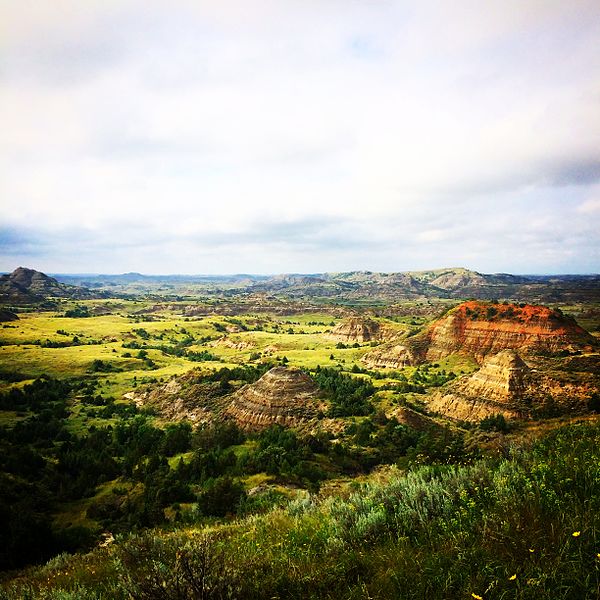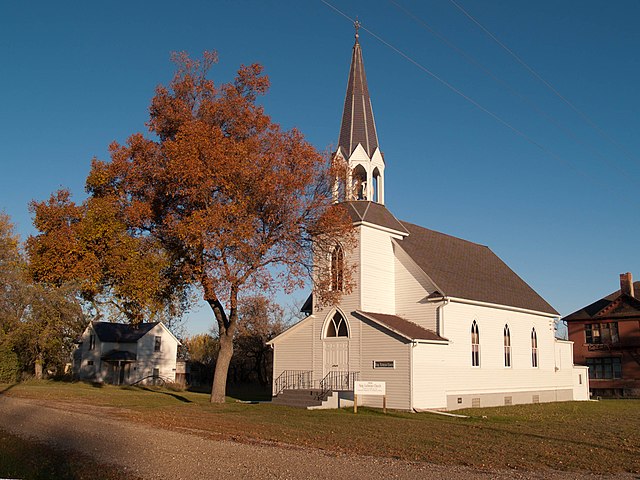Arikara, also known as Sahnish, Arikaree, Ree, or Hundi, are a tribe of Native Americans in North Dakota. Today, they are enrolled with the Mandan and the Hidatsa as the federally recognized tribe known as the Mandan, Hidatsa, and Arikara Nation.
An Arikara warrior, ca. 1840–1843, by Karl Bodmer
Arikara man wearing a bearskin, 1908
Mandan and Arikara delegation. Seated at center: Arikara chief Son of the Star
Alfred Jacob Miller - Interior of Fort Laramie - Google Art Project. One of the most important treaties between the Plains Indians was negotiated near Fort Laramie in 1851 and named after the fort. The treaty describes the territory of the different tribes.
North Dakota is a landlocked U.S. state in the Upper Midwest, named after the indigenous Dakota Sioux. It is bordered by the Canadian provinces of Saskatchewan and Manitoba to the north and by the U.S. states of Minnesota to the east, South Dakota to the south, and Montana to the west. North Dakota is part of the Great Plains region, characterized by broad prairies, steppe, temperate savanna, badlands, and farmland. North Dakota is the 19th largest state, but with a population of less than 780,000, it is the 4th least populous and 4th most sparsely populated. The state capital is Bismarck while the most populous city is Fargo, which accounts for nearly a fifth of the state's population; both cities are among the fastest-growing in the U.S., although half of all residents live in rural areas.
Fort Union Trading Post National Historic Site
North Dakota State Capitol, featuring an Art Deco tower
View of western North Dakota
Vang Evangelical Lutheran Church in Manfred

